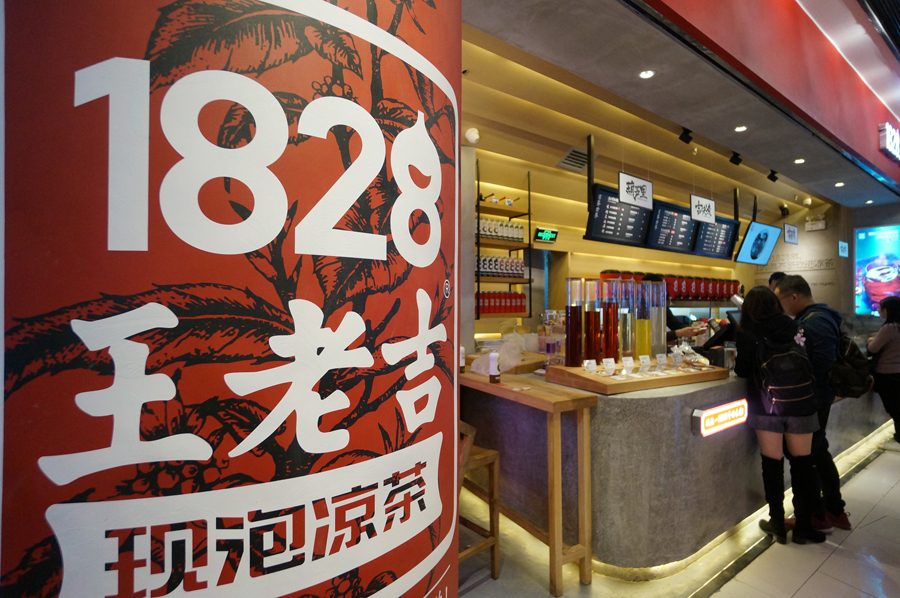Time-honored brands trying new ideas


Traditional firms using retail outlets to compete in more sophisticated market
China's time-honored brands, known as laozihao, are adopting fresh operation modes to catch the eyes of the country's increasingly sophisticated consumers.
Recently, traditional Chinese herbal tea producer Guangzhou Wanglaoji Pharmaceutical Co Ltd launched four outlets, called 1828 Wanglaoji, in Guangzhou, Guangdong province, bringing handmade herbal tea to physical stores.
Unlike conventional herbal tea, which is usually sold in cans in supermarkets, the handmade teas are now being served in physical stores, where clerks offer customized herbal drinks for the consumers.
"I ordered a classical one. Customers can choose herbs to add to their drinks, such as orange peel, goji berry and licorice. Compared with Wanglaoji's herbal tea sold in cans, I think the handmade one has a heavier taste of Chinese medicine," said Jackie Chen, 25, a Guangzhou resident.
Three of the new 1828 Wanglaoji outlets are in shopping malls, and consumers find them a great combination with adjacent restaurants.
"I feel great to have a herbal tea after having a spicy meal in the Sichuan restaurant nearby," Chen said.
"Because the climate in Guangdong is usually damp and hot, we often suffer from excessive internal heat. In order to repel internal humidity and heat, we are fond of drinking herbal tea," he added.
Industry insiders said that currently, the two leading Chinese herbal tea makers, Guangzhou-based Wanglaoji and Hong Kong-based JDB Group, take up more than 80 percent of the market share. Both the density and the scope of the distribution channels have reached a saturated level, and all categories of the products of the time-honored brands have reached maturity, making it difficult to find new market growth points.
As a result, they said, it is reasonable for those time-honored brands to extend their product categories and establish their own distribution channels.
Recent years have witnessed earthshaking changes in China's catering market. Consumers are aware of an increasing number of diversified food and drinks, and those time-honored brands that mainly rely on traditional operation modes face severe challenges.
Meanwhile, the market for instant food and beverages is continuously growing. Official statistics show that by the end of 2017, the market volume of instant drinks had reached more than 50 billion yuan ($7.94 billion) per year, and the figure is still rising.



































